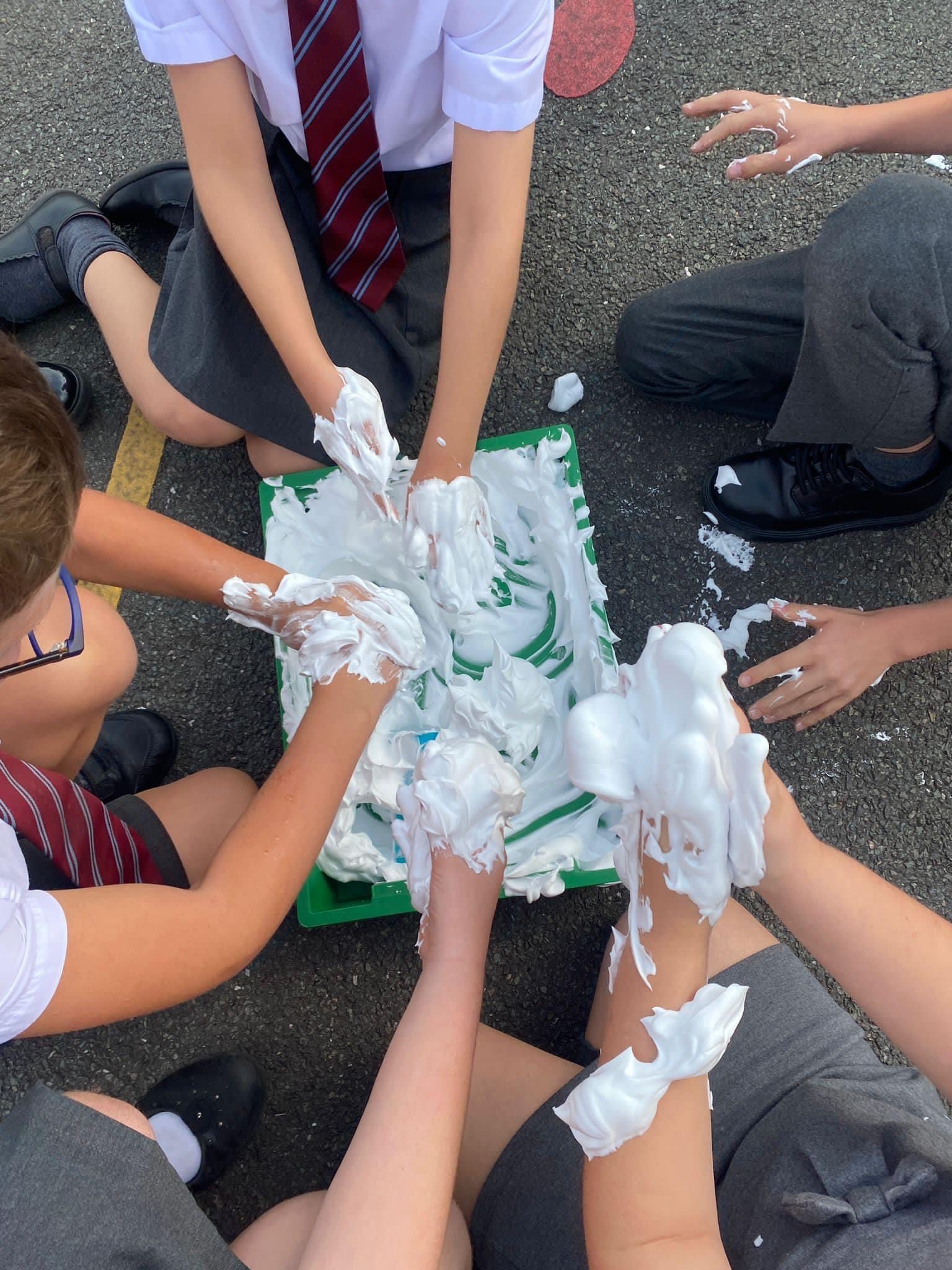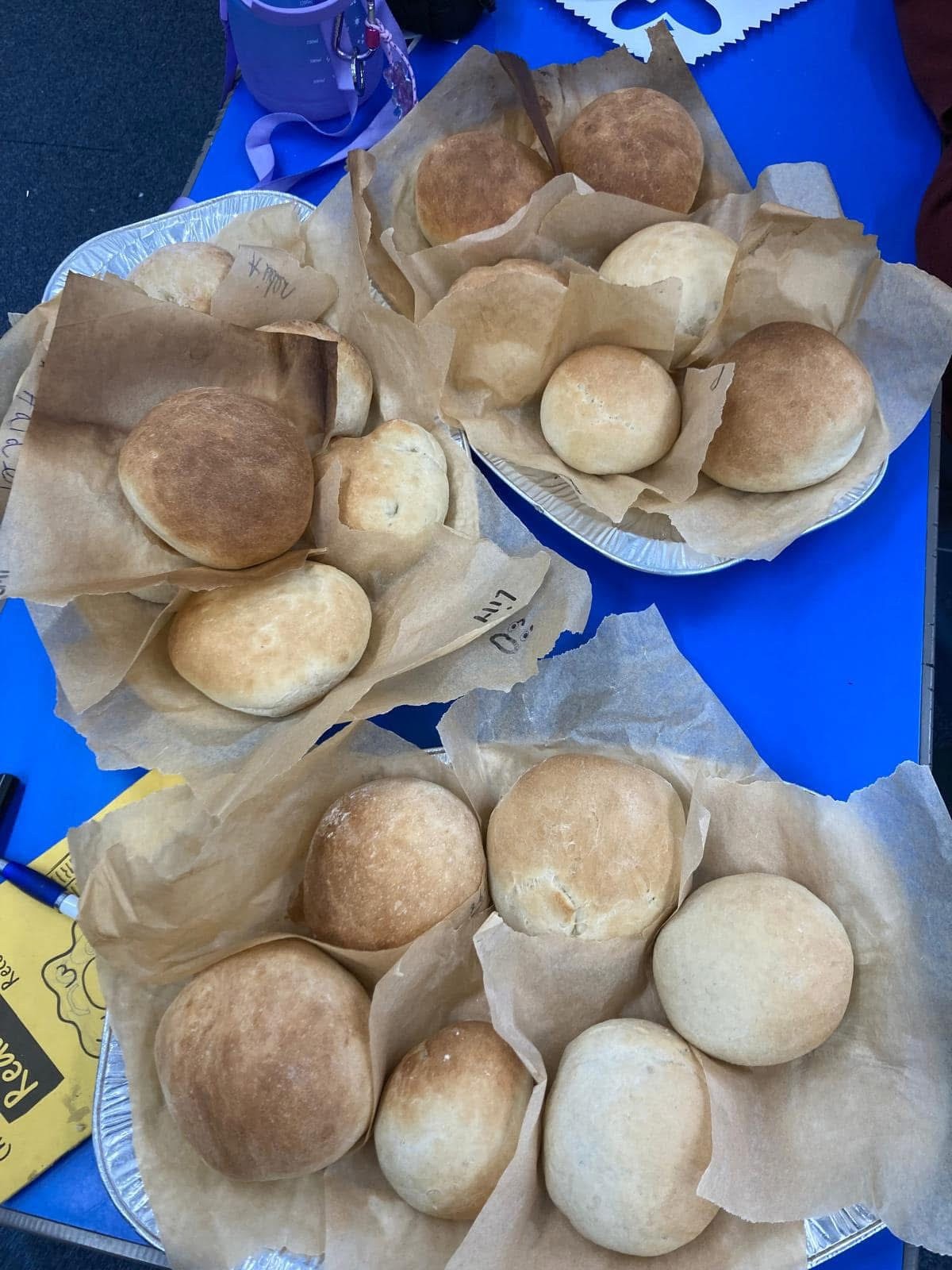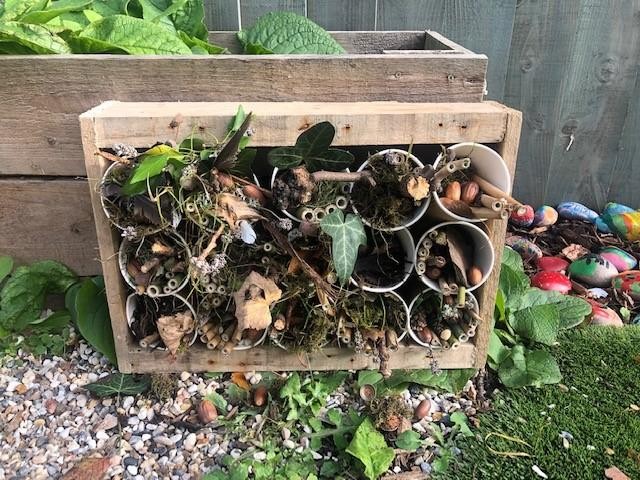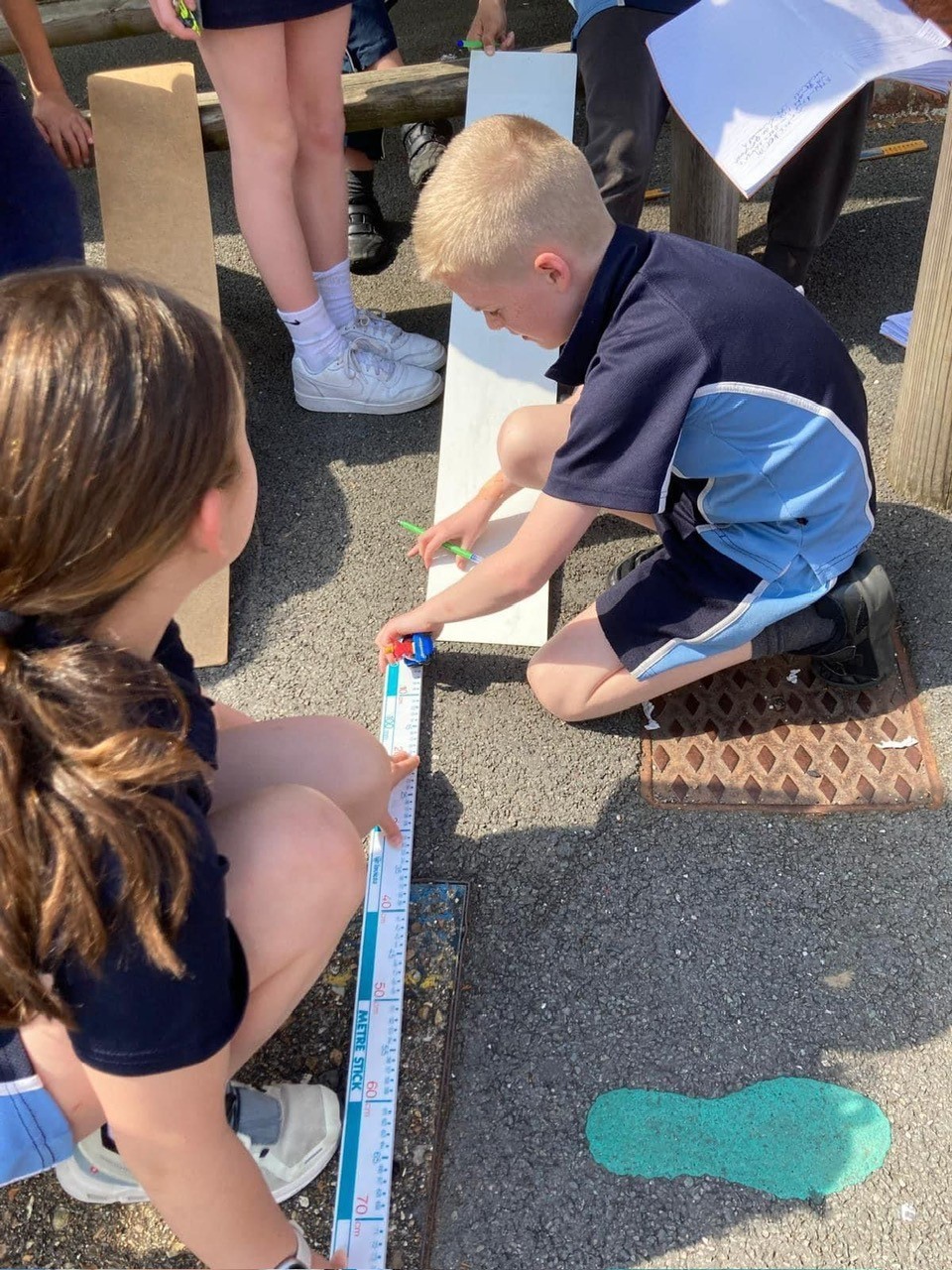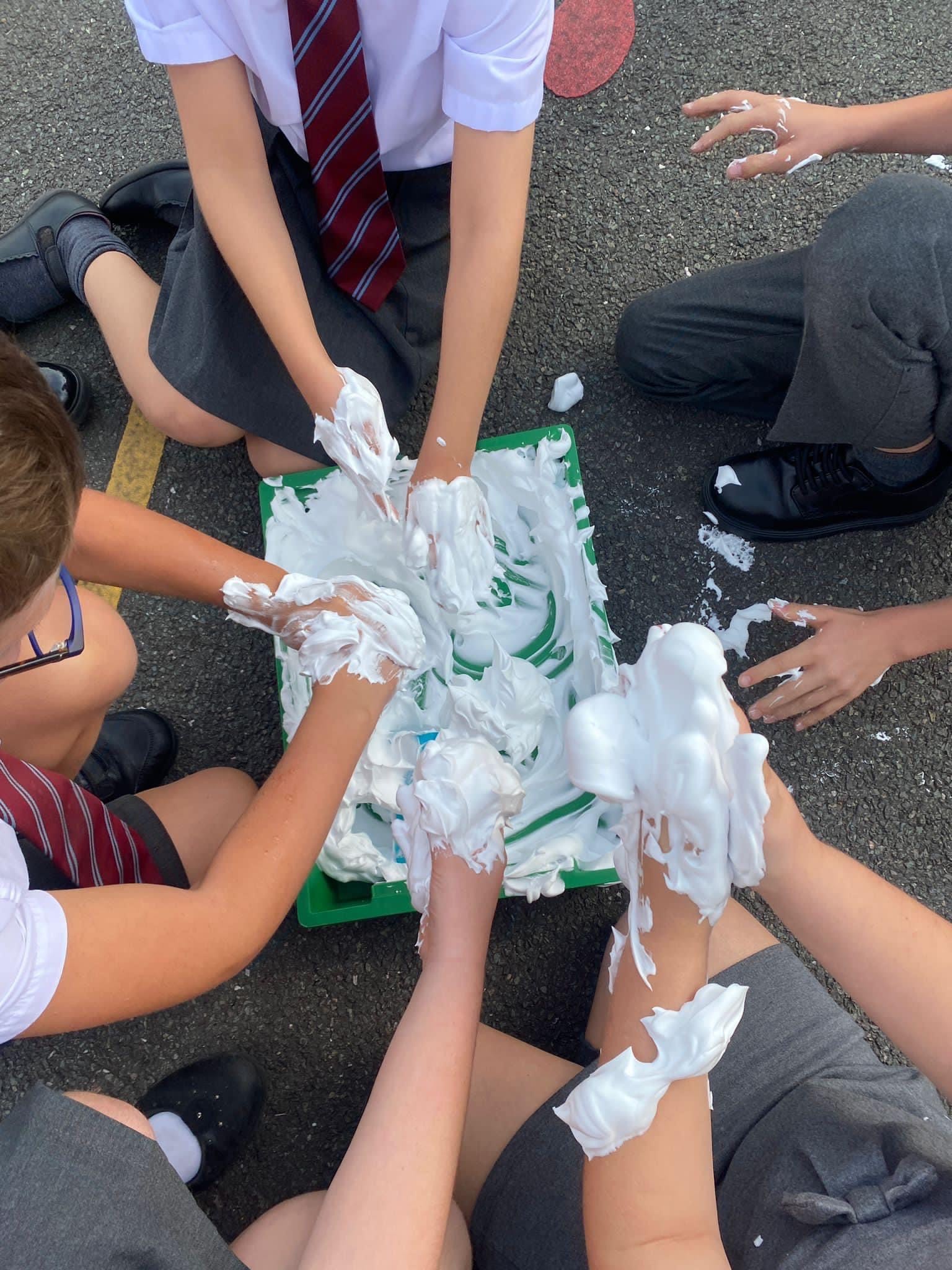Intent
At St Michael’s, our science curriculum aims to develop a sense of curiosity and excitement about natural phenomena and an understanding of how the scientific community contributes to the past, present and future.
The curriculum aims for pupils to develop a complex knowledge of biology, chemistry and physics but also adopt a broad range of skills in working scientifically and beyond. The scheme of work is inclusive and meaningful so all pupils may experience the joy of science and make associations between their science learning and their lives outside the classroom. Studying science allows pupils to appreciate how new knowledge and skills can be fundamental to solving arising global challenges.
We aim to ensure that we are ‘smashing stereotypes’ with our science learning, ensuring scientists studied reflect our diverse world, promoting British values and our school value of respect.
We will deliver a Science Curriculum which:
· has a strong focus on developing knowledge alongside scientific skills across biology, chemistry and physics.
· promotes curiosity and excitement about familiar and unknown observations.
· challenging misconceptions and demystifying truths
· provides continuous progression by building on practical and investigative skills across all units.
· encourages critical thinking, with the ability to ask perceptive questions and explain and analyse evidence.
· develops scientific literacy using wide-ranging, specialist vocabulary.
Our science curriculum is split into the following 3 strands:
· Scientific knowledge and understanding of:
- Biology: living organisms and vital processes
- Chemistry: matter and its properties
- Physics: how the world we live in ‘works’.
· Working scientifically: processes and methods of science to answer questions about the world around us.
· Science in action: uses and implications of science in the past, present and future.
Our curriculum is a spiral curriculum, with essential knowledge and skills revisited with increasing complexity. A range of engaging recall activities promotes frequent pupil reflection on prior learning, ensuring new learning is approached with confidence. The Science in action strand is interwoven throughout the curriculum to make the concepts and skills relevant to pupils and inspiring for future application. Cross-curricular links are included regularly, allowing pupils to make connections, spark their curiosity and apply their science skills to other areas of learning. Working scientifically skills are integrated with conceptual understanding rather than taught discretely to provide frequent but relevant opportunities for developing scientific enquiry skills. Children regularly engage in practical activities that aid in the progression of individual skills and provide opportunities for full investigations. Each unit is based on one of the key science disciplines: biology, chemistry and physics. The National curriculum content has been grouped into six key areas of science to show progression throughout the school:
Plants
Animals, including humans
Living things and habitats
Materials
Energy
Forces, Earth and space
Implementation
In EYFS (Reception), pupils build a solid foundation for science before transitioning to Key stage 1. Through hands-on exploration and focused observations, lessons spark curiosity and foster an early appreciation for the natural environment, paving the way for more structured scientific learning in Key stage 1.
Each year group has an exploratory unit called ‘making connections’ that delves beyond the statutory curriculum. This unit assimilates prior knowledge and skills to evoke excitement and provide an additional method of assessing scientific attainment. Lessons incorporate various teaching strategies, from independent tasks to paired and group work, including practical, creative, computer-based and collaborative tasks. This variety means that lessons are engaging and appeal to those with different learning styles.
In Year 1, the transition into the Key stage is eased by providing a selection of activities: some adult-led, some independent tasks and some that can be used during continuous provision.
Knowledge organisers for each unit help to identify key learning and vocabulary and can be useful as an adaptive teaching tool or to revise learning from the unit
Impact
Following our science curriculum, pupils should leave school equipped with the requisite skills and knowledge to succeed in science at Key stage 3. They will have the necessary tools to confidently and meaningfully question and explore the world around them and critically and analytically experience and observe phenomena. Pupils will understand the significance and impact of science on society. The expected impact of our curriculum is that pupils will:
· Develop early scientific thinking skills through hands-on exploration and sensory experiences in EYFS (Reception).
· Develop a body of foundational knowledge for the biology topics in the National curriculum: Plants; Animals, including humans; Living things and their habitats; and Evolution and inheritance.
· Develop a body of foundational knowledge for the chemistry topics in the National curriculum: Everyday materials; Uses of everyday materials; Properties and changes of materials; States of matter; and Rocks.
· Develop a body of foundational knowledge for the physics topics in the National curriculum: Seasonal changes; Forces and magnets; Sound; Light; Electricity; and Earth and space.
· Evaluate and identify the methods that ‘real world’ scientists use to develop and answer scientific questions.
· Identify and use equipment effectively to accurately gather, measure and record data.
· Be able to display and convey data in a variety of ways, including graphs.
· Analyse data to identify, classify, group and find patterns.
· Use evidence to formulate explanations and conclusions.
· Demonstrate scientific literacy through presenting concepts and communicating ideas using scientific vocabulary.
· Understand the importance of resilience and a growth mindset, particularly in reference to scientific enquiry.
· Meet the end of key stage expectations outlined in the National curriculum for science.
The impact of our Science curriculum is monitored through:
- Formative assessment on a lesson-by-lesson basis
- An end of topic ‘knowledge catcher’ for children to show what they have learnt, including new vocabulary
- Pupil and teacher voice
- Learning walks and book looks
- Summative assessment is recorded on OTrack at the end of the summer term

